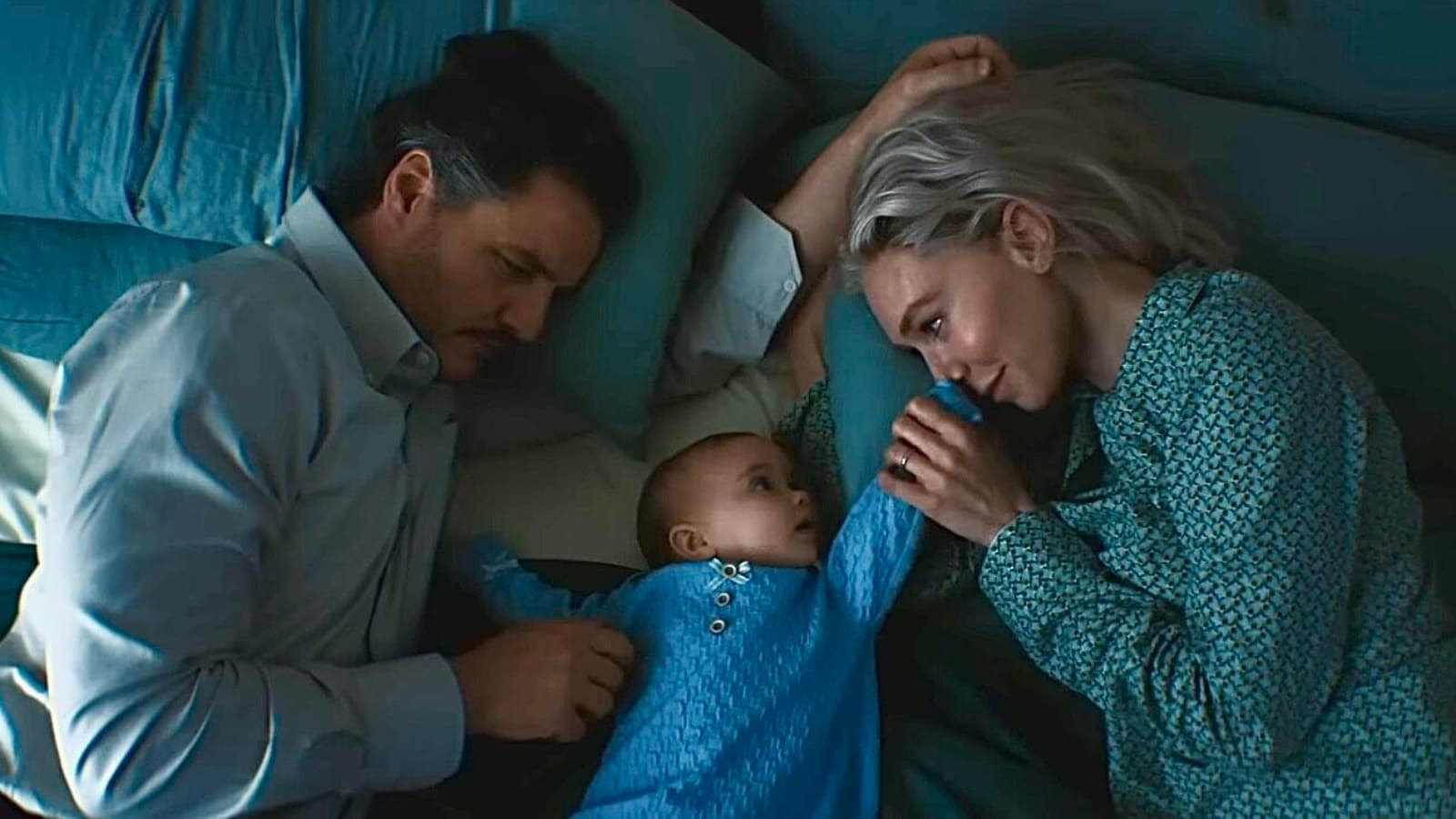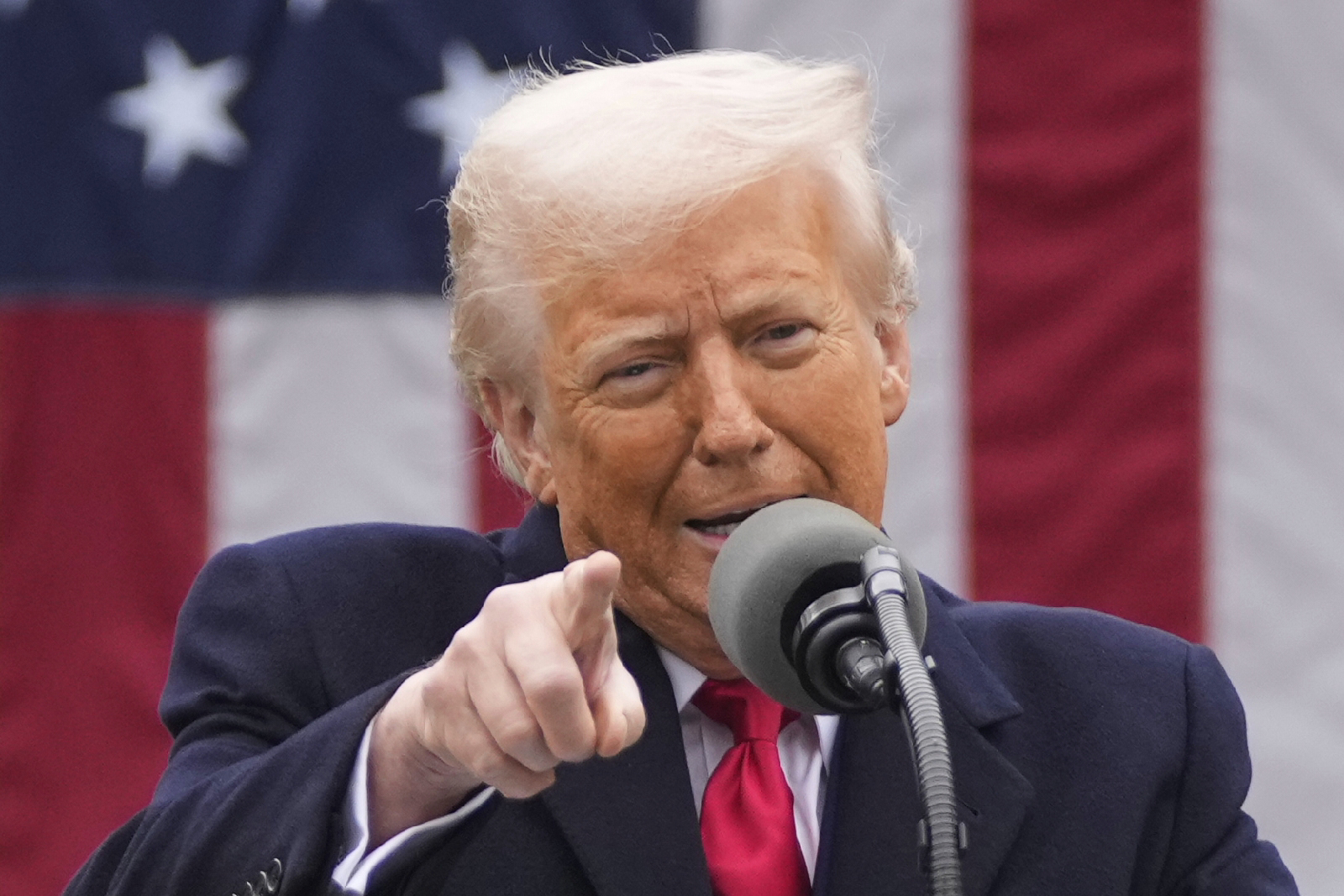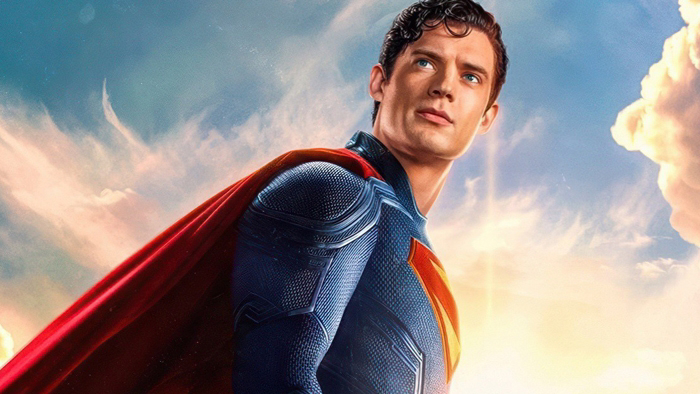'The Naked Gun' review: Liam Neeson and Pamela Anderson navigate a delightfully absurd crime caper
Legacy sequels often struggle to find their footing between nostalgia and reinvention, and The Naked Gun reboot is no exception. Directed by Akiva Schaffer, this revival attempts to graft a convoluted crime plot onto the franchise’s classic barrage of slapstick and deadpan parody. The result is uneven, but there’s enough inspired silliness — and just enough plot to hang it on — to keep the audience engaged.
The Naked Gun reboot fumbles its plot but scores laughs, as Liam Neeson plays it straight and Pamela Anderson steals scenes in this messy but funny revival.
Paramount
The film opens with a bank robbery sequence that tries to blend physical comedy with high-stakes action. It’s an effective table-setter, though many of the best gags already appeared in the trailer. The incident eventually ties into the suspicious death of a tech engineer whose electric vehicle crashes under mysterious circumstances. His sister, Beth Davenport (Pamela Anderson), believes foul play is involved and seeks help from Frank Drebin Jr. (Liam Neeson), a police detective trying to live up to his legendary father’s name.
Frank’s initial reluctance to take the case — and to partner with a civilian — is undercut almost immediately when both he and Beth show up at the same nightclub, the domain of tech mogul Richard Kane (Danny Huston). Kane, modeled loosely after Elon Musk, becomes the film’s central villain. His evil plan involves a device called the PLOT Device (Primordial Law of Toughness), which can control minds and is part of a wider scheme dubbed “Project Inferno.”
The movie tries to juggle this outlandish plot with a series of episodic sketches and running gags. At times, the story threatens to collapse under its own absurdity. Kane's ambitions — to reshape Los Angeles and possibly the world — stretch far beyond the jurisdiction of a local LAPD detective, even one as oblivious as Frank Drebin Jr. The scope feels borrowed from a spy spoof like Austin Powers, pulling the narrative away from its procedural parody roots.
Supporting characters are inconsistently used. Paul Walter Hauser as Ed Hocken Jr. — son of George Kennedy’s original sidekick — is introduced to mirror the intergenerational passing of the baton, but the film often forgets to include him in key moments. Meanwhile, Police Chief Davis (CCH Pounder) exists primarily to deliver exposition and issue warnings about budget cuts and public relations disasters, a subplot that never pays off.
What holds the story together, just barely, is the dynamic between Neeson and Anderson. As the crime mystery becomes increasingly convoluted, their odd-couple partnership keeps the film grounded. Neeson delivers absurd lines with stoic precision, allowing the comedy to emerge from contrast rather than caricature. Anderson, meanwhile, plays Beth with a light, almost effortless touch. Her character’s logic may be nonsensical — she insists her investigative credentials come from writing made-up true crime — but her confidence sells every moment.
Plot cohesion is often sacrificed in service of gags. A romantic detour at a snowbound cabin, complete with a homicidal snowman, interrupts the central investigation without adding much. Cameos, including one by “Weird Al” Yankovic, arrive without narrative relevance. Even the villain’s lair and motives are underdeveloped, used mostly as setups for increasingly surreal punchlines.
Still, the film’s structural shortcomings are partially offset by its commitment to its own ridiculousness. Neeson finds space to reflect, mid-case, on the importance of Buffy the Vampire Slayer and Sex and the City — tangents that make no narrative sense but contribute to the film’s surreal, joke-a-minute tone. These moments echo the anarchic energy of the original trilogy, even if the overarching story lacks the same clarity.
There’s a recurring motif of Frank Jr. trying to live up to his father's legacy, highlighted in a moment where he stares at a portrait of the original Frank and says, “I want to be just like you, but at the same time, completely different.” That sentiment applies just as much to the movie itself. The new Naked Gun tries to honor its origins while crafting a plot that might appeal to contemporary audiences. The crime narrative may falter, but it provides just enough of a spine for the film’s more effective humor to operate.
Comedy thrives on rhythm, and this sequel is often offbeat in the wrong way. Jokes hit in bursts, but the story pacing sags, especially in the second act. The central mystery — why the tech engineer died and what Kane’s ultimate plan entails — never fully coheres. What remains are scattered highlights: Neeson biting off the barrel of a gun, Anderson deadpanning absurd responses, and the occasional inspired throwback to the original’s anarchic spirit.
The Naked Gun reboot may be narratively sloppy, but its commitment to lunacy — and the odd brilliance of its lead duo — gives it enough comic life to justify its existence. It doesn’t solve the case of how to seamlessly revive a beloved franchise, but it at least keeps the file open.










